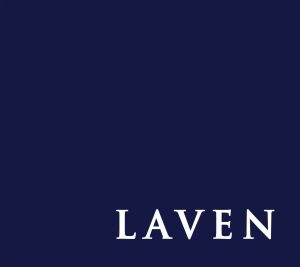Welcome to the third edition of the monthly Laven Partners’ Monitoring Update on the proposed AIFM Directive.
The new Directive seeking to regulate hedge funds is charging ahead to become law. Laven Partners provides a monthly update on the development and status of this Directive. In the true Laven Partners style, we also look at any interesting comments made by regulators and leading industry players in relation to the Directive.
Our aim is to involve the financial community and notably to aggregate the representation of investors as we believe the Directive severely reduces their access to investment opportunities. Please register your interest and comments by emailing us at [email protected]. Please feel free to forward our monitoring update to anyone who may be interested.
—————————————————————————————————————————-
Over the last two weeks, there has been a flurry of activity regarding the European Commission’s draft Directive, as the legislative process and debates in the European Parliament and Council got underway.
MEP’s were joined by Boris Johnson in Brussels, where the Mayor of London voiced his concerns over the likely effects that the “singularly ill-conceived directive” will have not only over London, but the whole of the UK. In an interview with the BBC, Boris defended the alternative investment industry, stating that EC Directive “will target one of the few sectors of the financial services industry that was not very much involved in the recent meltdown”.
With more than 80% of the continent’s alternative investment industry based in London, the City would suffer deeply from the implementation of the Directive, which would unquestionably put the jobs of the 42,000 people employed by the London’s private equity, venture capital, and hedge fund firms at great risk. However, London would not be suffering alone – the wider UK economy would lose out on the £3 billion in tax revenues raised by the sector, thereby “[cutting] off a vital supply of investment funding at a time when the economy needs it most”.
Standing alongside the Mayor in Brussels was Stuart Fraser, Chairman of the Policy and Resources Committee from the City of London Corporation. Fraser chose to concentrate on the impact that the legislation would have on the EU, diplomatically highlighting the “many positive things” about the EC Directive. This did not last long however, as his tone soon changed and Fraser bluntly stated that “if [the Directive] goes ahead unchanged it will be narrowly protectionist, fail to take account of other global players, and damage an important EU industry”. He went on to state that the financial services’ ability to “compete in this increasingly global industry”‘ would be greatly affected, and consequently firms would be forced to relocate outside of the EU to competing countries such as the United States and Singapore.
Politics has been implicated as a key aspect in the drafting of the EC Directive, which appears to work in favour of France and Germany. As the London Mayor pointed out, “it is always possible that people in drawing up these directives have paid particular attention to their home governments who may indeed want to erode the competitiveness of the city of London”, whilst Stuart Fraser commented that “the Directive concentration [is] too much on where business is done rather than how.”
Current holder of EU Presidency, Sweden, lived up to expectations as diplomats suggested that modifications should be made in several areas of the Directive, including the definition of the funds covered, the calculations of leverage, and the way in which the new regulations would interact with existing regulations.
For investors, the highlight of the last fortnight has probably been the letter written to Charlie McCreevy, the EU’s internal markets commissioner, by a group of successful Dutch Pension Funds, amongst which were APG, Blueskygroup, Doctor Pension Fund Services, Shell Asset Management and Syntrus Achmea Asset Management. For the first time, the letter voiced investors’ concerns over the threat that the current proposal poses to “reduce investment opportunities and risk diversification, [and] lead to higher costs and lower returns”. German MEP Wolf Klintz echoed the thoughts of many when stating that the gross error with the Directive is it’s “one-size-fits-all approach”.
Laven Partners is pleased to see that investors are voicing their concerns more vigorously. Laven Partners has also been in touch with EU officials regarding essential amendments to the Directive and to put forward notably the case for defining the type of hedge funds concerned. One of the main concerns of industry players has been the application of the Directive to all alternative funds. Laven Partners believe that a few clear laws on the regulation of those hedge fund strategies that really are likely to cause systematic risk would most likely suffice to limit the effect that some politicians are seeking to target.
We fully support the expansion of UK style regulations to the rest of the EU. As compliance consultants, we have first hand experience in the way the regulatory framework is enforced which is still its biggest weakness. At present there is still no new draft of the Directive. A debate in the European Parliament has been scheduled for 10 November 2009 and a plenary sitting for February 2010. The adoption of the Directive has been forecasted to take place in March 2010.
—————————————————————————————————————————-
Please keep a look out again for our next monthly monitoring update on the EC Directive and find out the results of some of the discussions taking place in Brussels…




